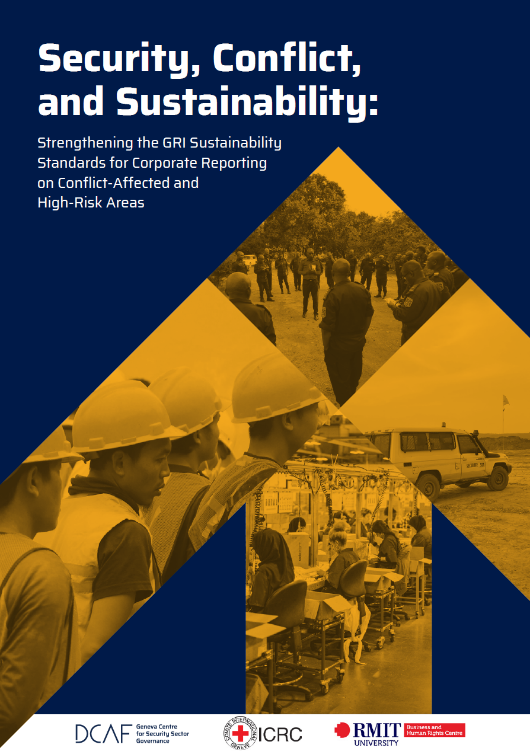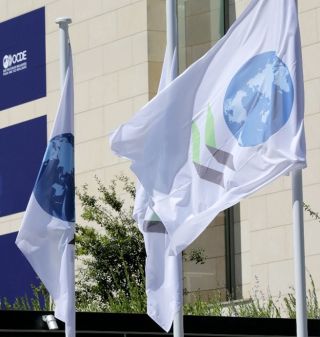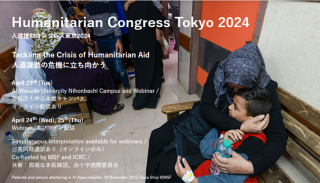New Report on Security, Conflict and Sustainability : Strengthening the GRI Sustainability Standards for Corporate Reporting on Conflict-Affected and High-Risk Areas

DCAF, ICRC and the RMIT Business and Human Rights Centre have developed a report on how the Global Reporting Initiative (GRI) can strengthen reporting requirements on conflict and security-related issues. The report analyses:
- How responsible security management, conflict sensitivity, and respect for international humanitarian law (IHL) are covered by the current GRI standards.
- How companies can use the current GRI standards to report on risk management in CAHRAs.
- What more the GRI could do to strengthen reporting requirements on these issues.
The Global Reporting Initiative Standards are a comprehensive set of standards widely used by companies in reporting their impacts on the economy, environment, and people. The GRI has informed the development of mandatory due diligence reporting requirements (such as on the European Union level).
Reporting standards increase transparency and provide information for national regulators, civil society, and consumers about what companies are doing on social issues, including conflict sensitivity and human rights. The information in sustainability reporting has significant financial implications for companies. Investors use these reports to evaluate financing proposals and develop resolutions to collectively engage companies and encourage better human rights performance from companies.
How to use the report:
Part 1 is a mapping and gap analysis of existing GRI Corporate Reporting Standards and their coverage of responsible security management, conflict sensitivity and respect for IHL.
Part 2 provides guidance for reporting on CAHRAs-related operations using existing GRI Standards.
Part 3 is a blueprint for a new GRI Topic Standard for CAHRAs.
The authors will soft launch the report during a Partner Session at the OECD Forum on Responsible Mineral Supply Chains, taking place on Tuesday 21 May at 16:45 (Paris time) and titled “Towards Strengthened Conflict Sensitivity in Sustainability Reporting: Implications for Companies and Impacts on Rights Holders”.
Planning to attend the Forum? Register here!




